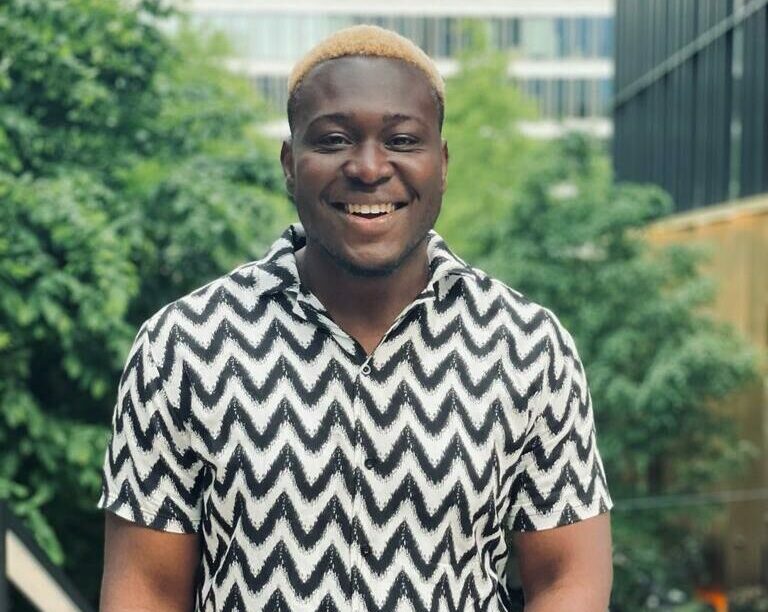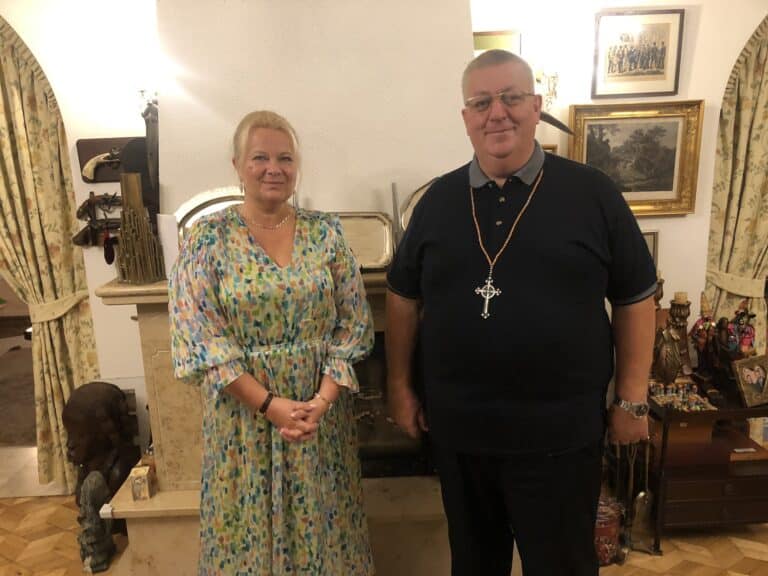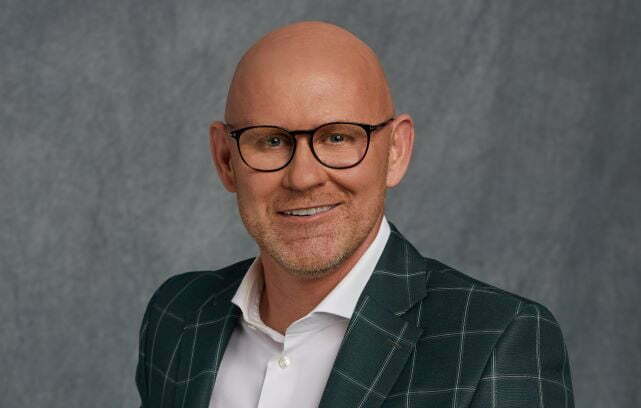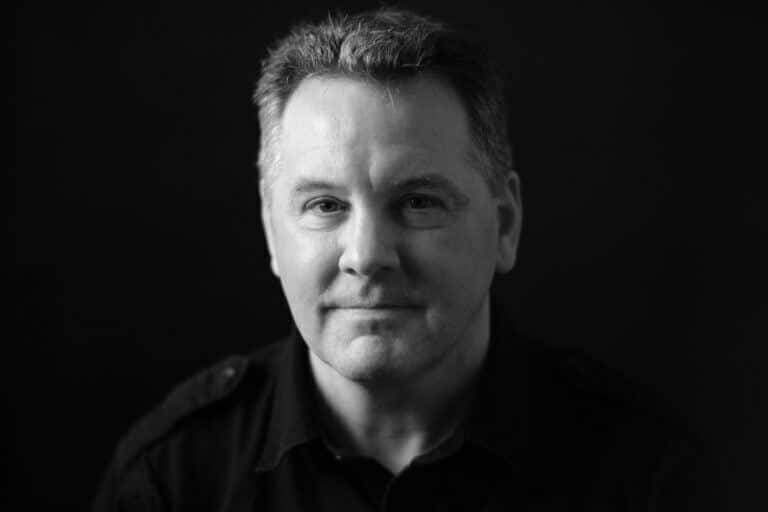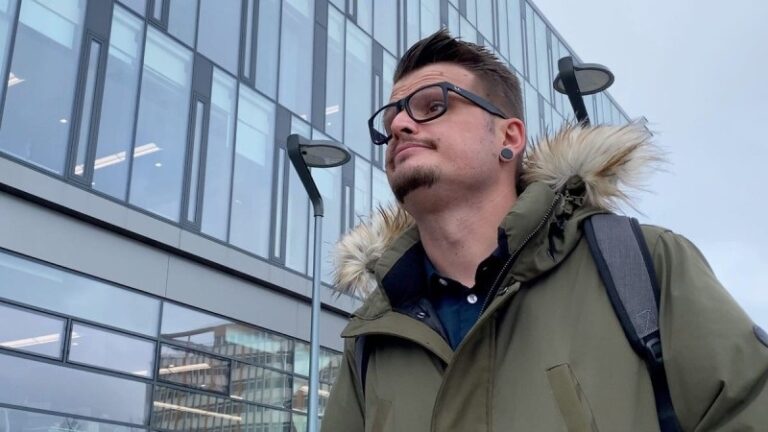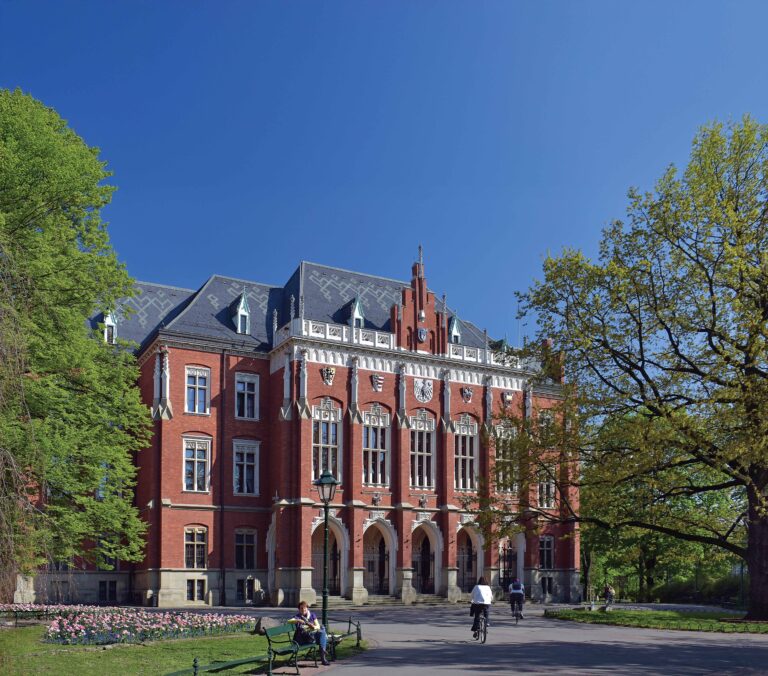Out of the box
Gator Segbefia is a Ghanaian student from Kiev, who came to Poland a few days after the Russian invasion on Ukraine. Like millions of people of Ukraine, he fled the war and found shelter and friendship in Poland.
You found yourself in Poland quite unexpectedly…
Yes. I was a student and working in Kiev. I arrived in Ukraine on the 1st of November 2021. Before that I had never, ever left my homeland Ghana. Back home I reached a point where I felt stuck and I needed to change something. I thought that a new environment would help – being away from everything I knew, so I could just start fresh. Ukraine, out of all European countries, was the easiest and the cheapest to go to. Plus, I knew someone who had been living and working there for about six years. That’s how I found out that as an English speaking person I wouldn’t have any trouble getting a good job there. The first memory I have is the moment I’d stepped outside the airport. It was freezing. My agent said – ‘you think this is cold? Just wait…’ /laugh/ I started the Ukrainian language course three days later and then went job hunting, which didn’t last very long. I got my residency card and was able to attend interviews. Soon I got a contract, training, and started working in customer service. And so I had this plan all mapped out for myself and things were working out really well for me. After the three and a half months I was about to land a new, better job. The interview was scheduled for the 24th of February.
And then Russia attacked…
At 5 am the vibration of the building woke us up. Morning strike. This memory of the first missile dropped is still so vivid. It was actually very close to us. We kept hearing the explosions and then they started the air raid sirens to let people know they should hide. I stayed inside for the entire day and at night we were taken to the underground bunker. It kept getting worse but at 4 am the next day we decided to go out. And that’s when we saw another explosion. It was terrifying. First you see this bright red light, a flash, then you start running and only after you hear the sound. At that moment I decided I wasn’t staying. We ran to the train station but we couldn’t get onto the train. I found a taxi but the fee to get to Lviv was $1000. I managed to find one Ghanaian and two Somalis, we chipped in and took the 11-hour journey to Lviv. When we arrived, I didn’t want to take any chances with the train after the first experience and continuing the drive towards Polish border was impossible because of the traffic. So we walked. It took us five hours. When we finally got to the border, we had to spend the night outside waiting for our turn to cross. The next day we were directed to the customs to get registered and then – we were in Poland. That was on the 28th of February.
Aside from the obvious state of shock, how was it for you to find yourself here?
Once we were in Poland – I remember this very clearly – I felt huge relief. The organization was so different – it was no longer like this rigid kind of system. First we were taken to some kind of a mall transformed into the big sleeping area with beds, food and all kinds of supplies. We had access to everything we needed in this situation. The buses were shuttling, taking people to the train station. I took the bus the next morning and then from the train station I headed to Warsaw. On the bus I met a Ghanaian who had someone waiting for him in Warsaw and that was my starting point here. At first my plan was to just take a breath, rest for few days and go back to Ghana.
What made you rethink?
I had a conversation with my dad. I told him what I was planning and he said – ‘ok, but maybe stay for a bit, rest and weigh you options – you never know’. And that’s what I did. In a meantime I was already in touch with the group of people from Ghana here in Poland. As a student in Ukraine I was able to register for the temporary residency. I signed up for the Polish language course and got my PESEL number. I didn’t even make a decision to stay at that point. But I had to act, organize myself and follow the necessary procedures. I had a lot of help from Polish people here – in terms of getting information and networking. This support I felt very early on.
You’ve been here for five months now – longer than in Ukraine. What do you think about Poland?
I like it very much. First of all, I feel much safer here. Back in Ukraine I felt more like a ‘stranger’. People in Warsaw seem to be really familiar with different cultures. There is this atmosphere of kindness and willingness to welcome others. I think this changed everything in my head. Back in Ghana and even in Ukraine I lived a very boxed life. I wasn’t really interested in exploring different ways of life or thinking, I just liked to stay within the things I knew. Of course this change may have a lot to do with the obvious experience of how close I was to the actual death, but somehow instead of bringing me down, it made me feel more alive. I’m sure that Poland, Warsaw and most importantly people, played an important part here and for this I will always be grateful.
So you would like to stay?
Yes, very much. Right now I am in the process of legalizing my stay, so I have to be patient and take it day by day. But it’s already been an incredible journey, which I really wish to continue in the future.

